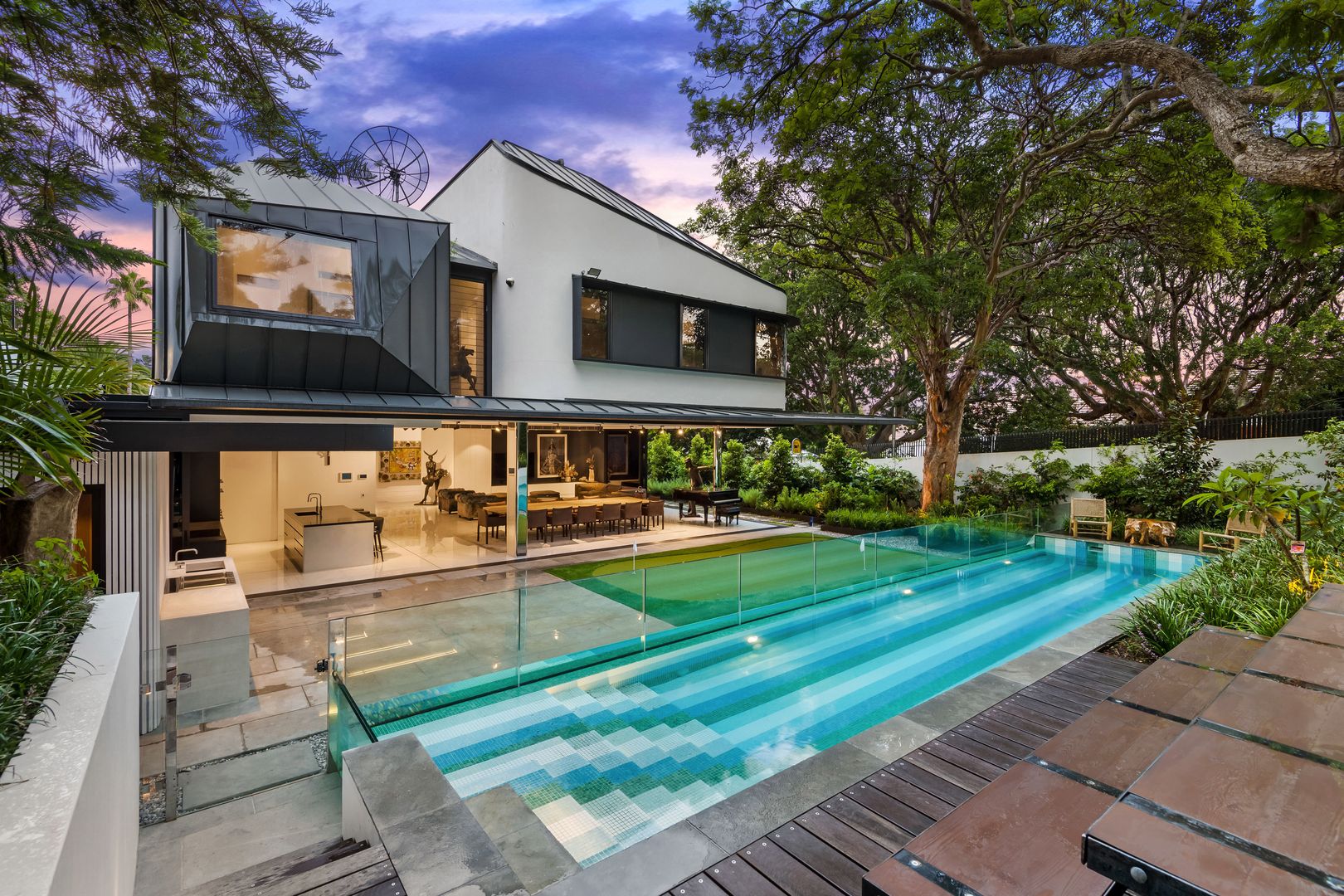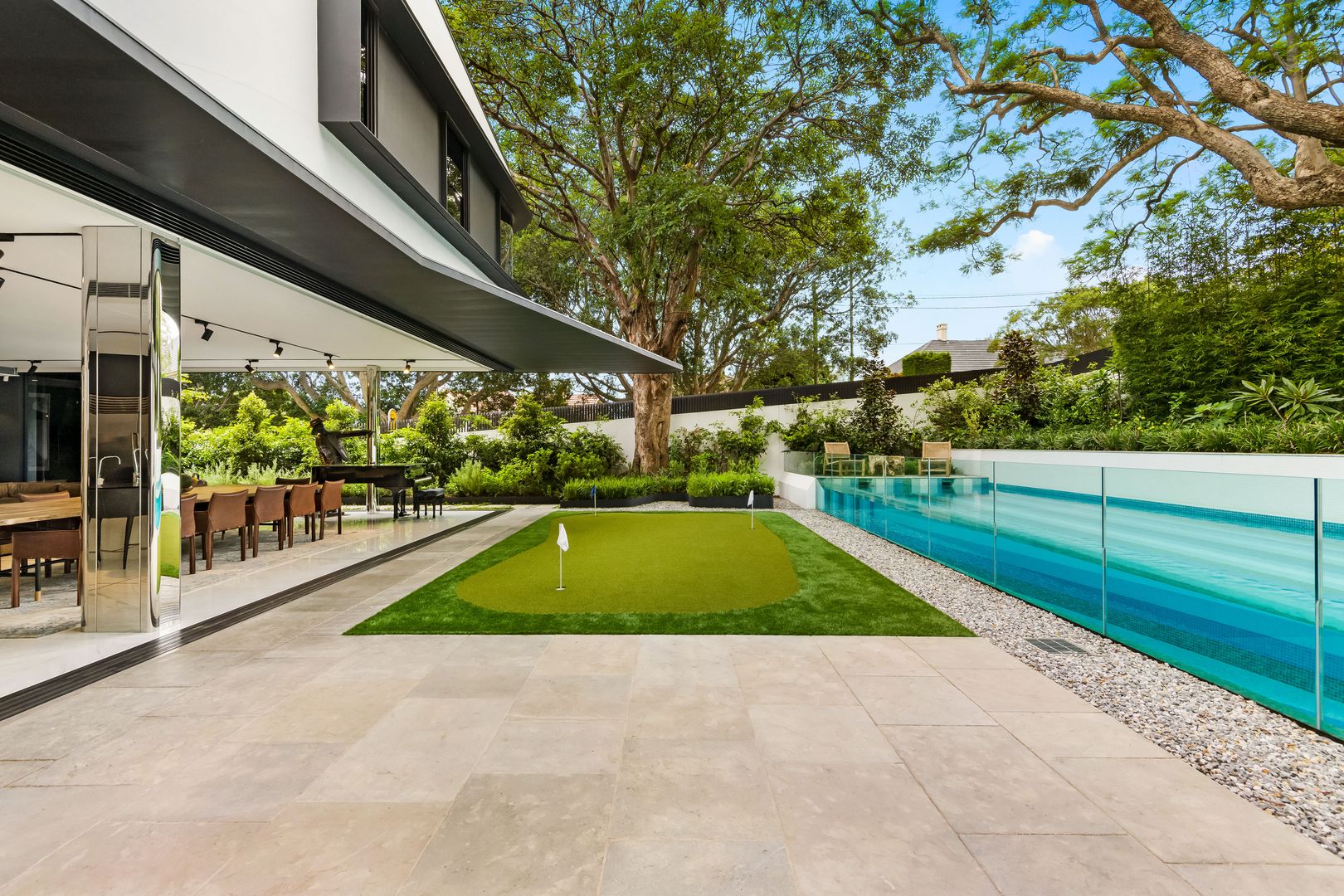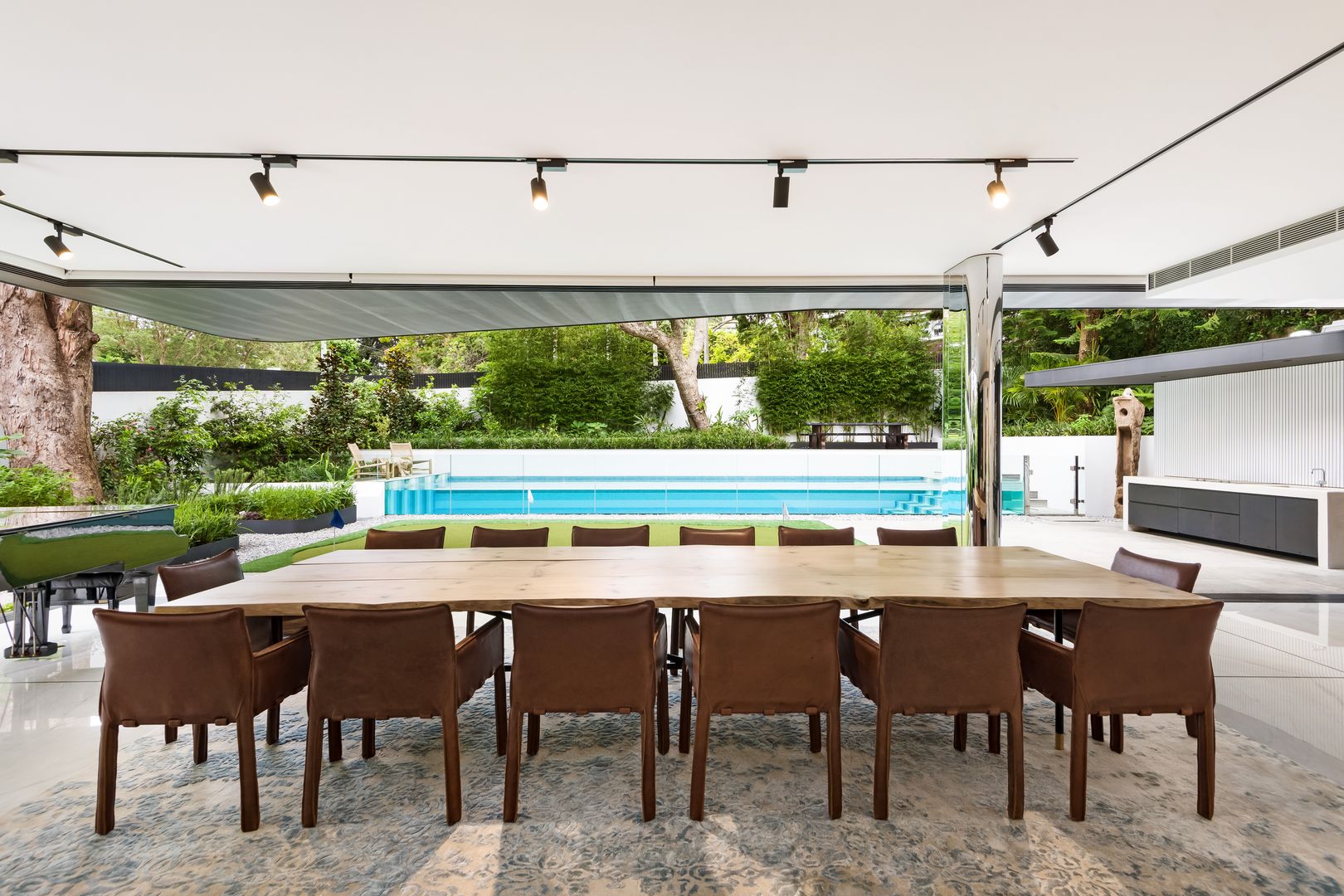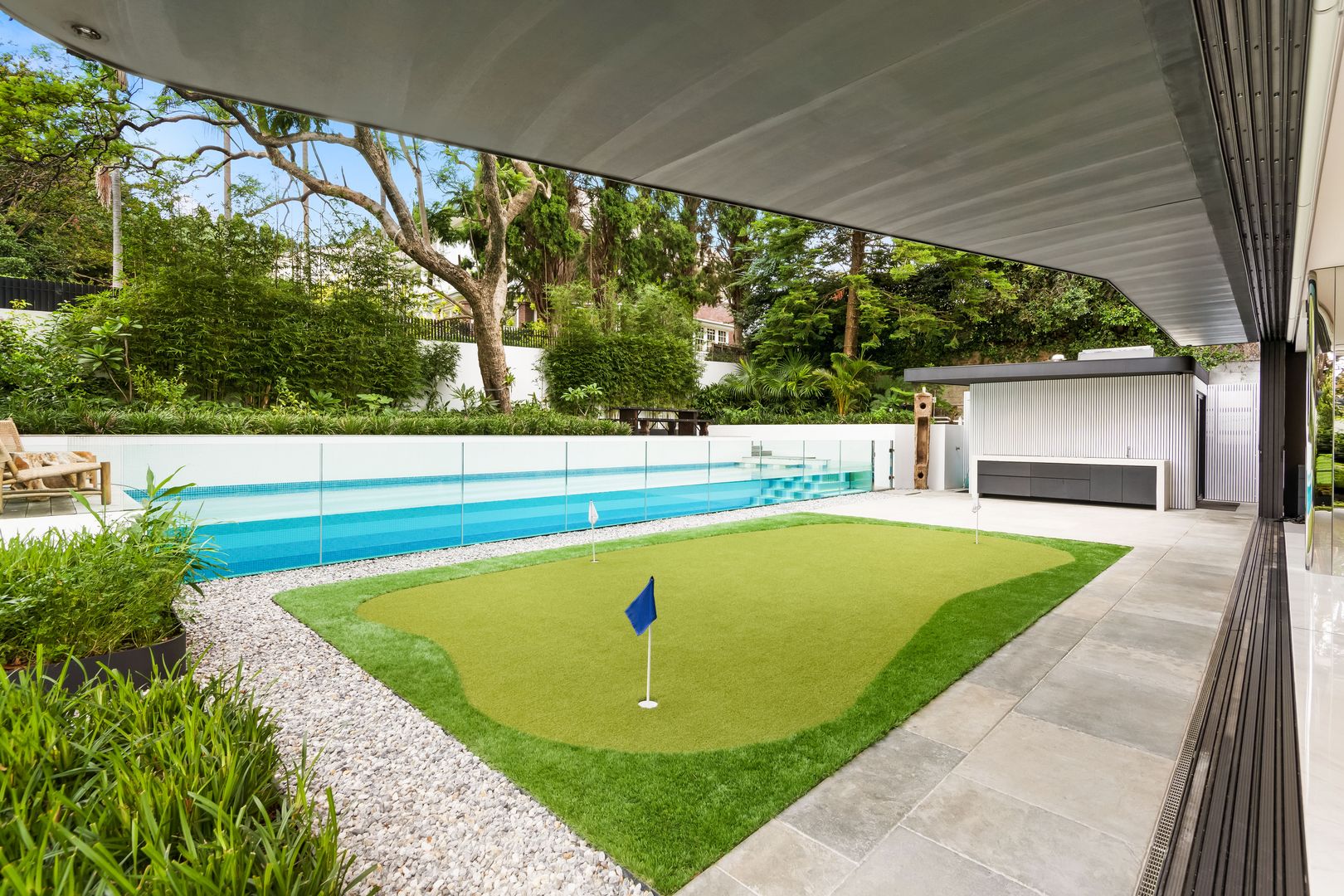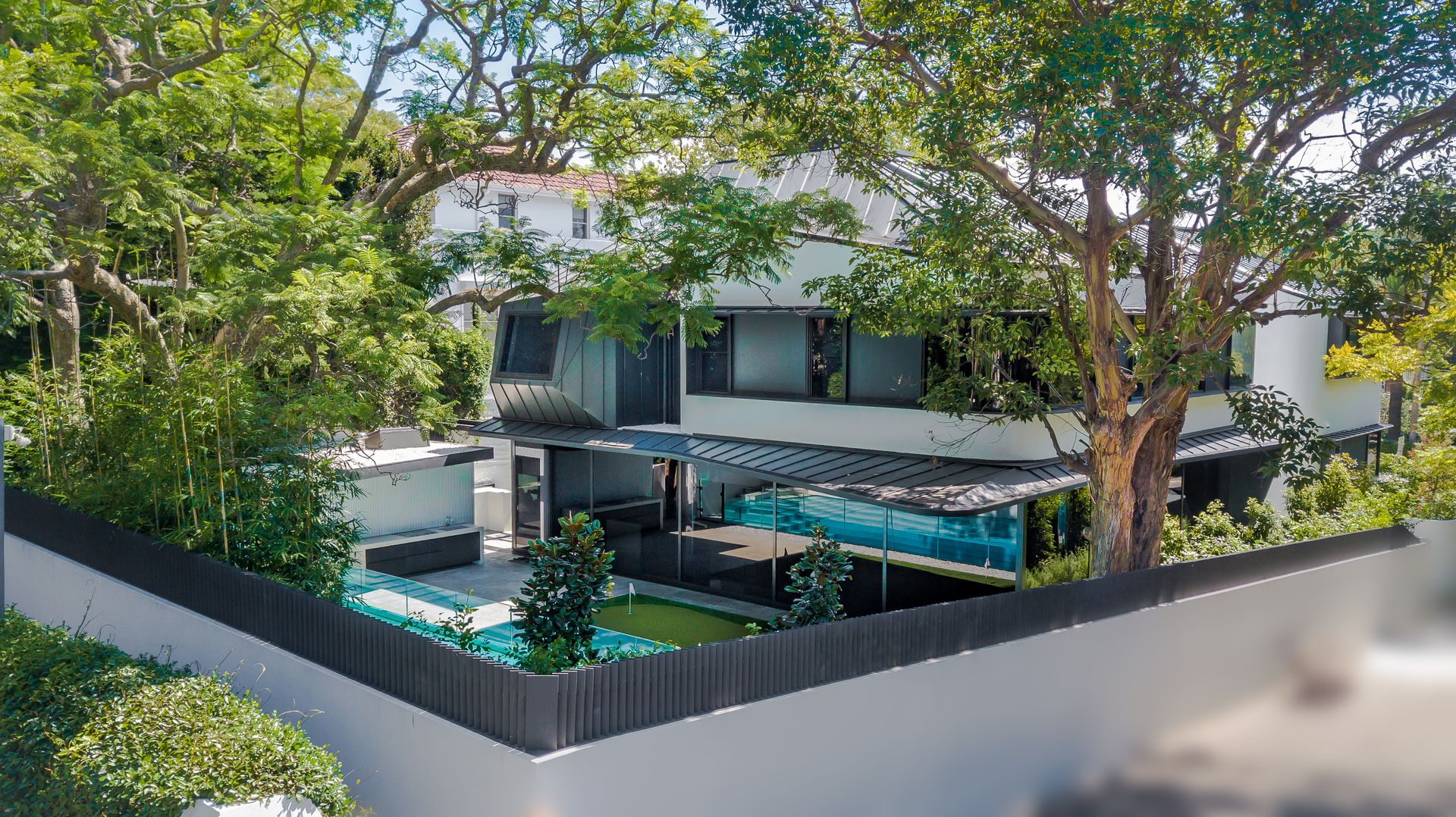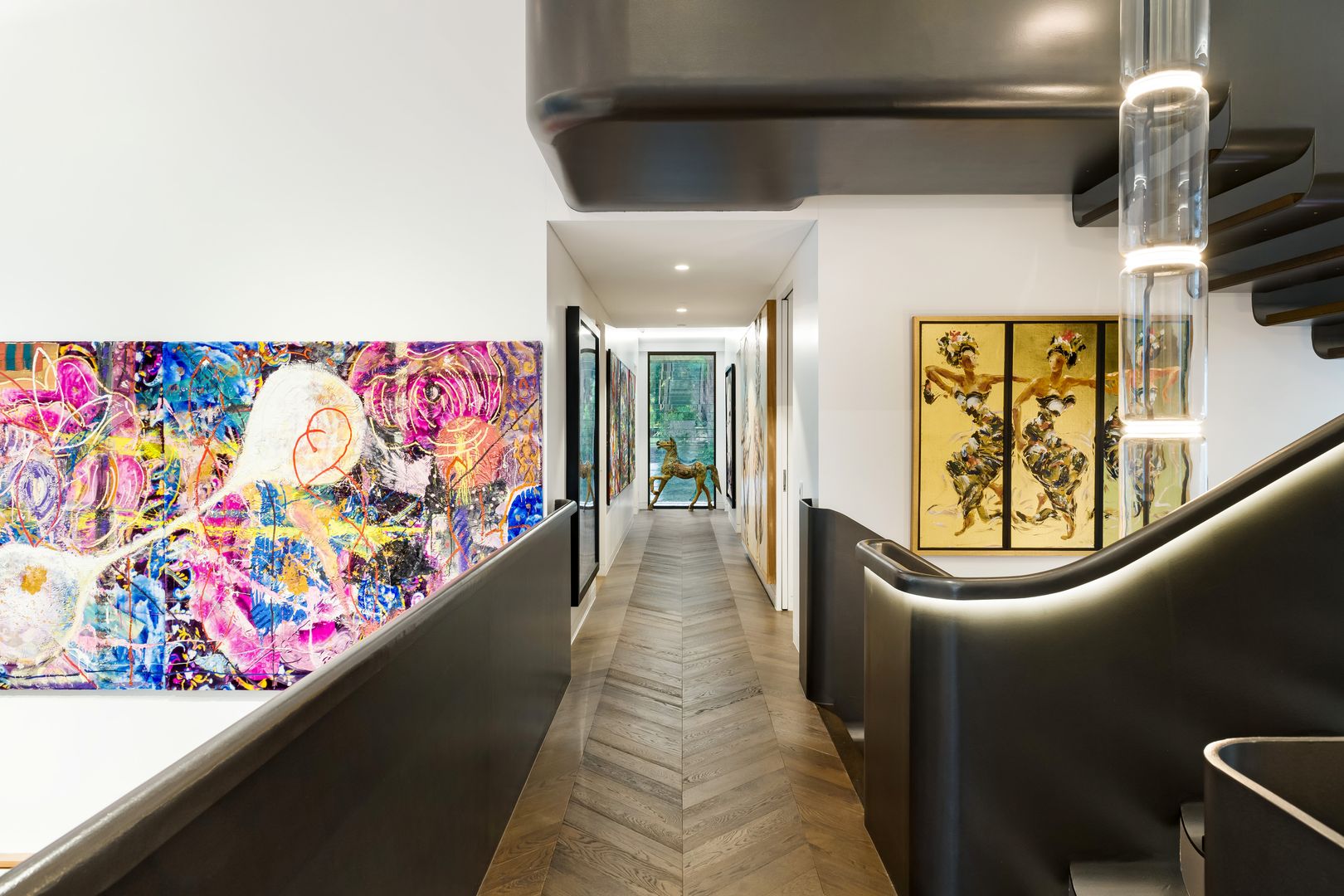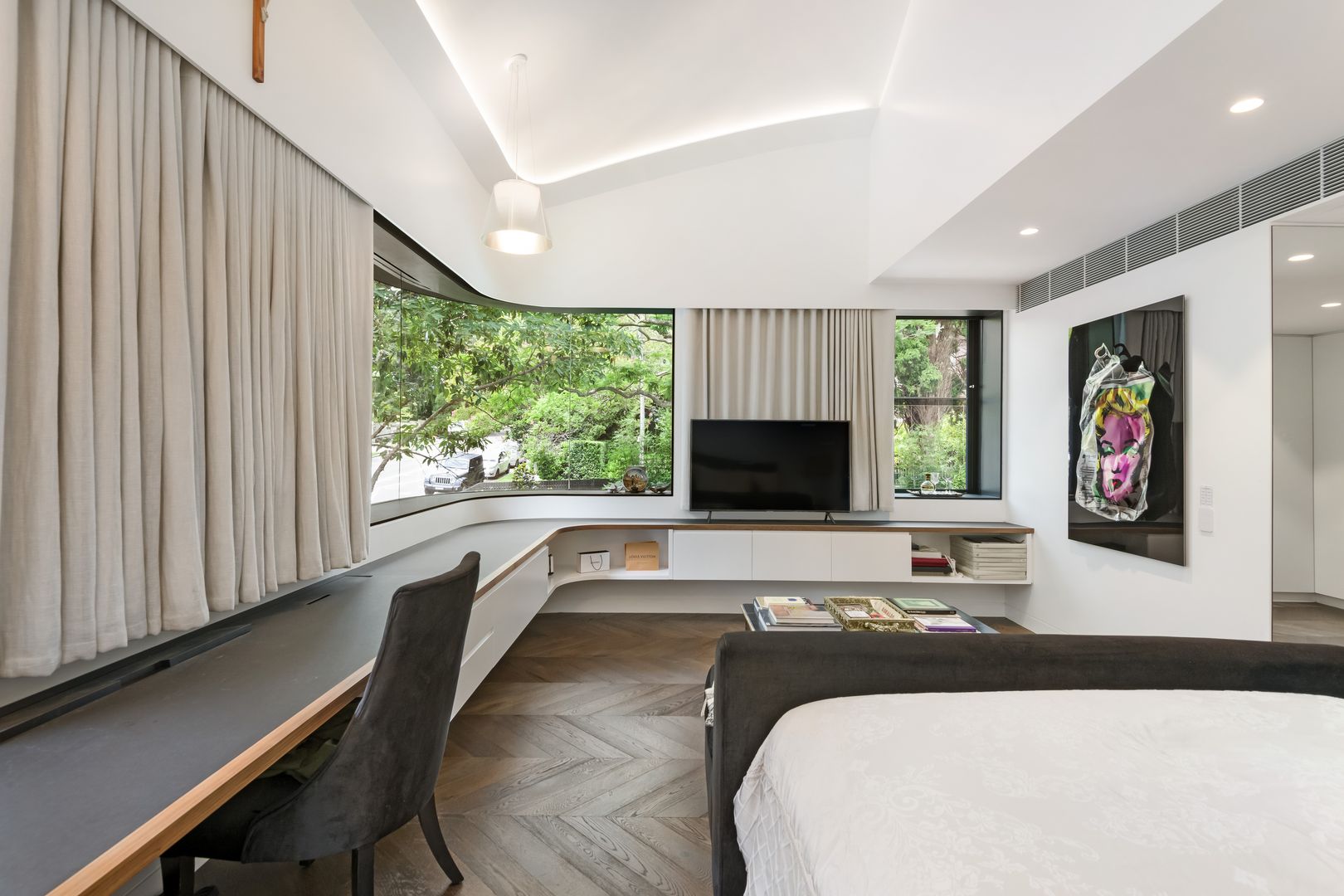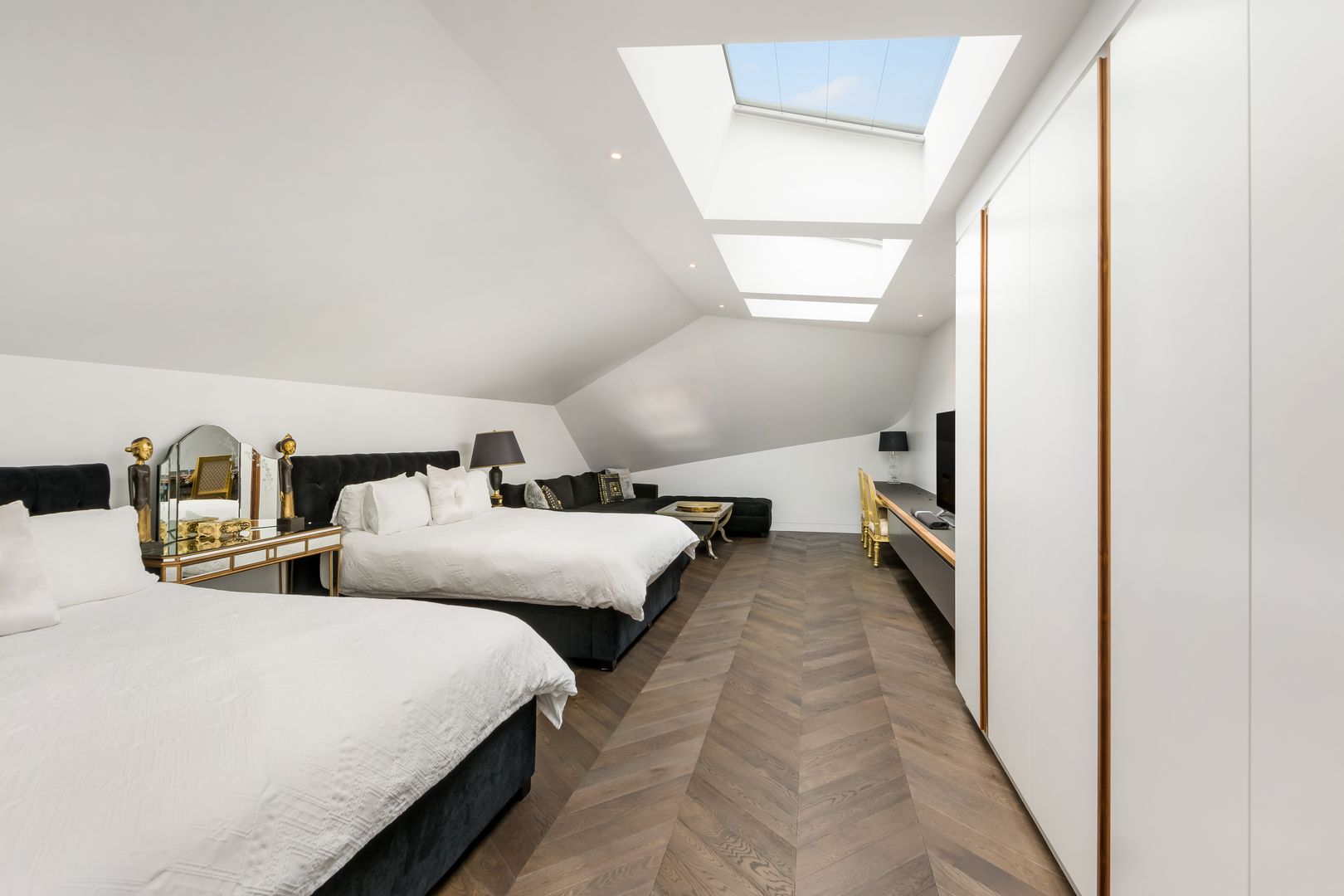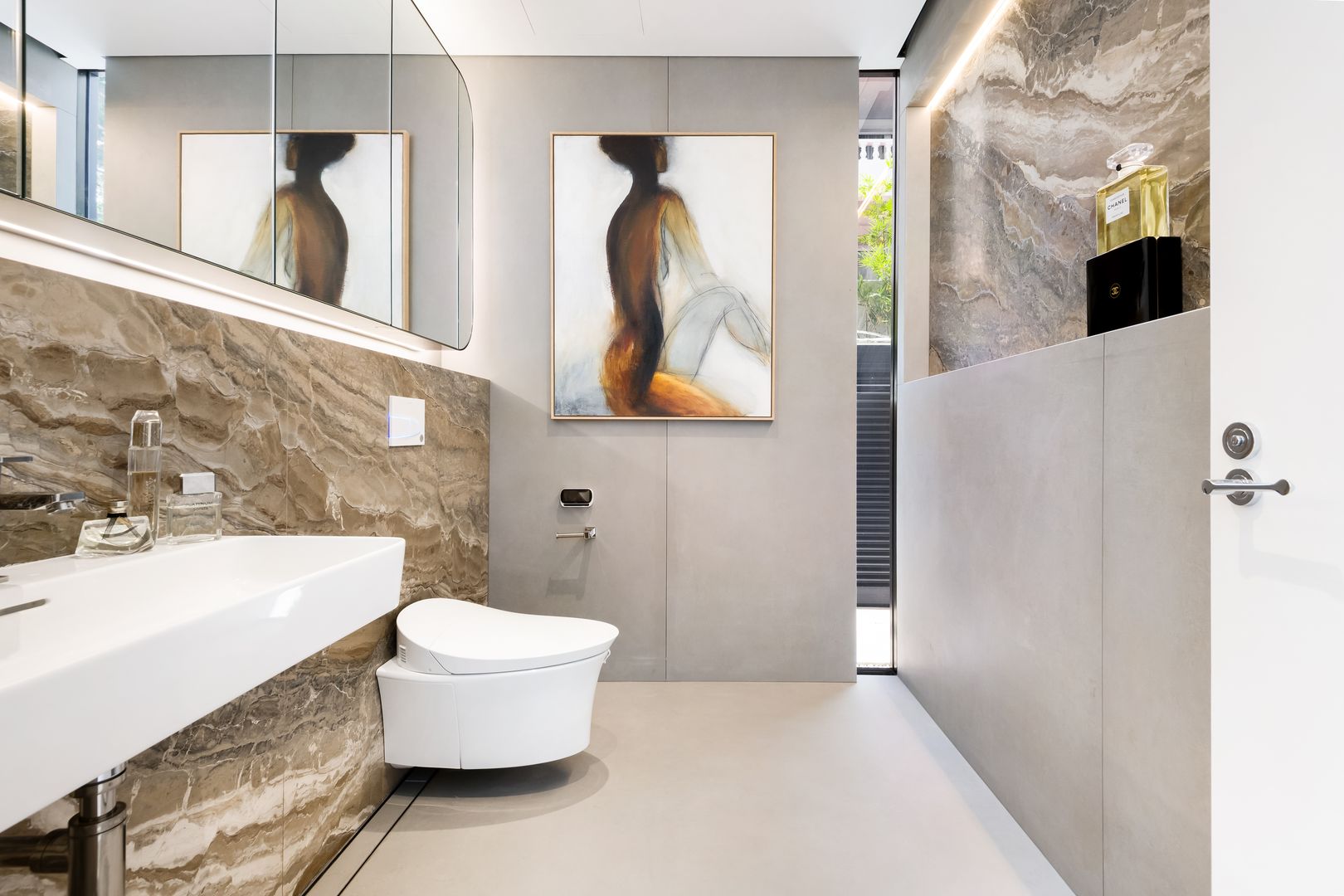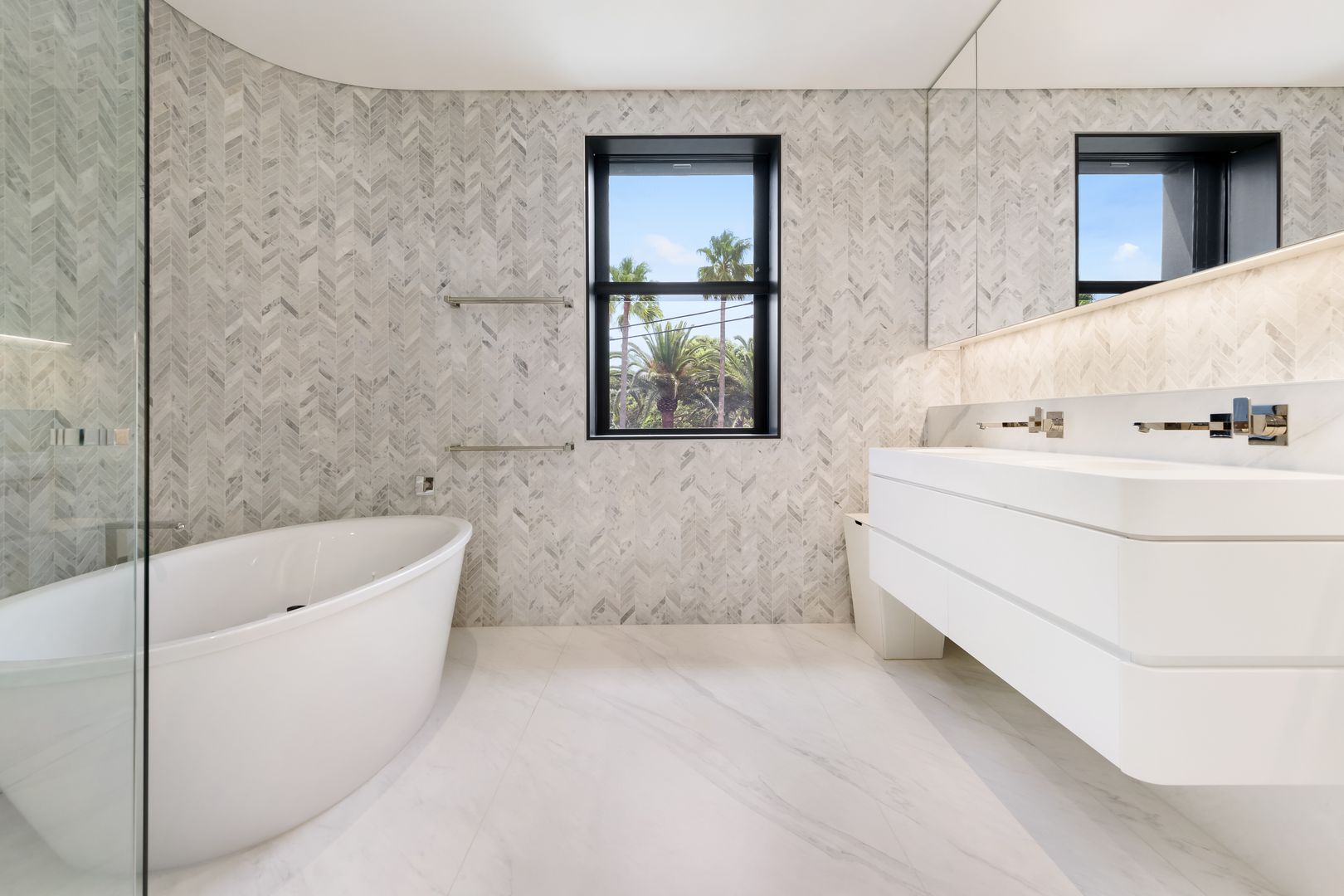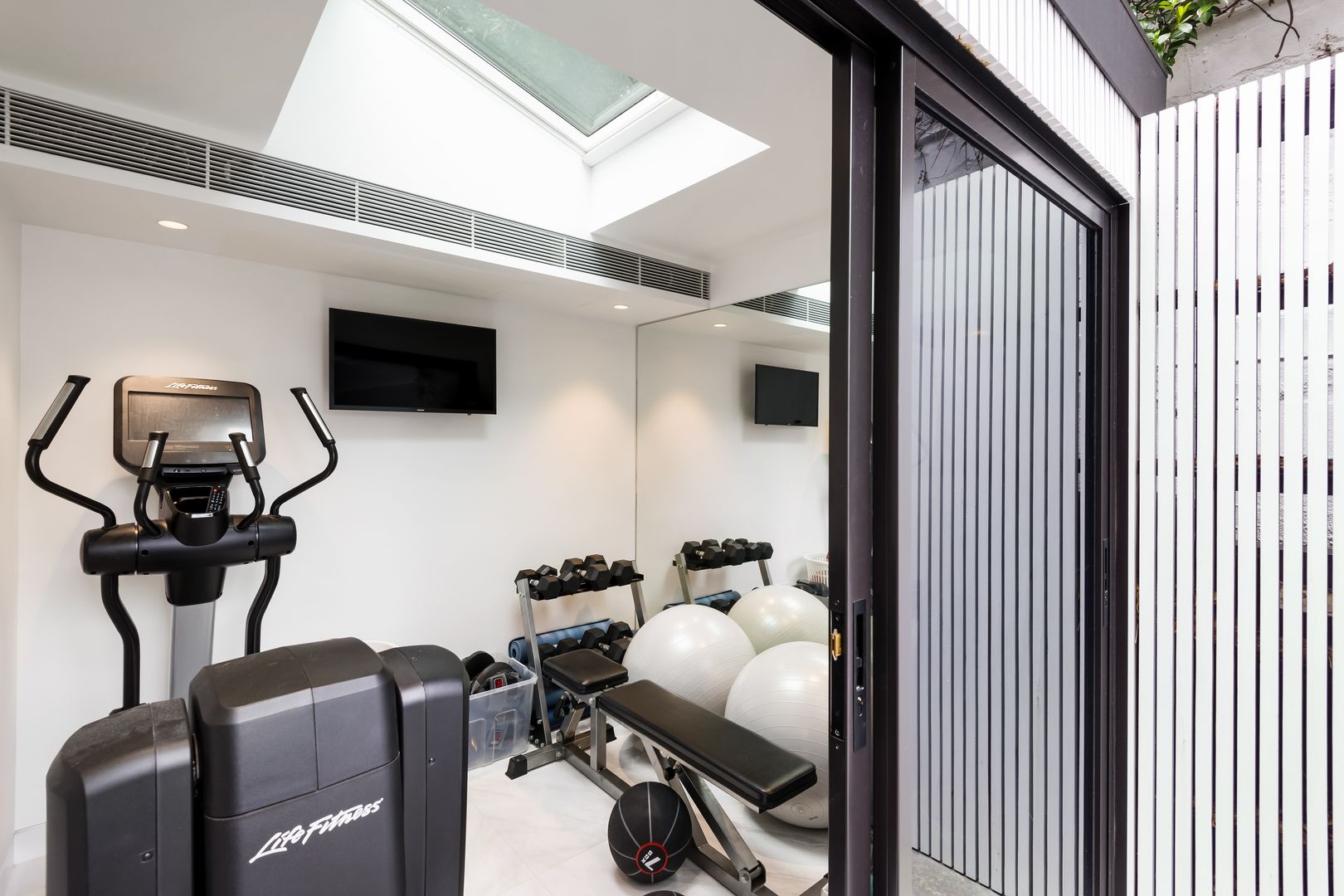Prestige Property: 92 Victoria Road, Bellevue Hill, NSW
Expansive, elevated family living in a blue-ribbon location.
A true entertainer’s dream, this newly complete home is a masterful study in modern luxury.
Here, in the sought-after address of Victoria Road, Bellevue Hill arrives a capacious, four-level, residence offering approximately 1000sqm of internal living space across 8-bedrooms, 9-bathrooms and a 6-car garage – with parking for a further three additional vehicles available on site.
Boasting flexible living and an elevated, contemporary palette driven by charcoal, chrome and white tones the Simon Hanson of Bureau SRH designed home offers elevated modern family living.
What is quickly decipherable is that no detail has been spared in the construction of the home, with a combination of Japanese tiling and European oak chevron parquetry underfoot, coupled with a professional gallery lighting system.
The ground floor sees the dining and living, which flows via floor-to-ceiling glass doors out to the landscaped gardens.
It’s here, a state of the art kitchen boasts integrated SubZero fridges, a Zip tap, Miele, Wolf and Ilve appliances arrives alongside a kitchenette.
Throughout the home there is eight bedrooms, all complete with ensuites that see Kohler branded fixtures, book-matched marble and bespoke joinery.
The master bedroom is found on the first floor with an expensive dressing room and opulently decorated ensuite. Also on this floor is an exceptionally large home office.
The top floor sees a parents’ retreat, as well as a large rumpus area for relaxing. The basement is complete with an expansive entertaining room, complete with wine cellar and billiards table, alongside a bathroom. Here, floor-to-ceiling glass doors open the space out into the garage complete with automated turntable. The basement to the first floor is serviced by private lift.
Built to entertain, the home offers plenty to be enjoyed, with the outdoor area replete with an outdoor kitchen, mini putting green, basketball court, gym, sauna, outdoor shower and magnificent swimming pool.
Further, the home is secured by CCTV, video intercom and code entry.
The residence is conveniently only moments Sydney’s most exclusive private schools, Bellevue Hill village, waterfront parks and Bondi Junction shopping and transport.
The listing is with D’Leanne Lewis (+61 419 676 667) of Laing+Simmons, Double Bay, EOI; lsdb.com.au
This stylish family home combines a classic palette and finishes with a flexible floorplan
Just 55 minutes from Sydney, make this your creative getaway located in the majestic Hawkesbury region.
As Paris makes its final preparations for the Olympic games, its residents are busy with their own—packing their suitcases, confirming their reservations, and getting out of town.
Worried about the hordes of crowds and overall chaos the Olympics could bring, Parisians are fleeing the city in droves and inundating resort cities around the country. Hotels and holiday rentals in some of France’s most popular vacation destinations—from the French Riviera in the south to the beaches of Normandy in the north—say they are expecting massive crowds this year in advance of the Olympics. The games will run from July 26-Aug. 1.
“It’s already a major holiday season for us, and beyond that, we have the Olympics,” says Stéphane Personeni, general manager of the Lily of the Valley hotel in Saint Tropez. “People began booking early this year.”
Personeni’s hotel typically has no issues filling its rooms each summer—by May of each year, the luxury hotel typically finds itself completely booked out for the months of July and August. But this year, the 53-room hotel began filling up for summer reservations in February.
“We told our regular guests that everything—hotels, apartments, villas—are going to be hard to find this summer,” Personeni says. His neighbours around Saint Tropez say they’re similarly booked up.
As of March, the online marketplace Gens de Confiance (“Trusted People”), saw a 50% increase in reservations from Parisians seeking vacation rentals outside the capital during the Olympics.
Already, August is a popular vacation time for the French. With a minimum of five weeks of vacation mandated by law, many decide to take the entire month off, renting out villas in beachside destinations for longer periods.
But beyond the typical August travel, the Olympics are having a real impact, says Bertille Marchal, a spokesperson for Gens de Confiance.
“We’ve seen nearly three times more reservations for the dates of the Olympics than the following two weeks,” Marchal says. “The increase is definitely linked to the Olympic Games.”

Getty Images
According to the site, the most sought-out vacation destinations are Morbihan and Loire-Atlantique, a seaside region in the northwest; le Var, a coastal area within the southeast of France along the Côte d’Azur; and the island of Corsica in the Mediterranean.
Meanwhile, the Olympics haven’t necessarily been a boon to foreign tourism in the country. Many tourists who might have otherwise come to France are avoiding it this year in favour of other European capitals. In Paris, demand for stays at high-end hotels has collapsed, with bookings down 50% in July compared to last year, according to UMIH Prestige, which represents hotels charging at least €800 ($865) a night for rooms.
Earlier this year, high-end restaurants and concierges said the Olympics might even be an opportunity to score a hard-get-seat at the city’s fine dining.
In the Occitanie region in southwest France, the overall number of reservations this summer hasn’t changed much from last year, says Vincent Gare, president of the regional tourism committee there.
“But looking further at the numbers, we do see an increase in the clientele coming from the Paris region,” Gare told Le Figaro, noting that the increase in reservations has fallen directly on the dates of the Olympic games.
Michel Barré, a retiree living in Paris’s Le Marais neighbourhood, is one of those opting for the beach rather than the opening ceremony. In January, he booked a stay in Normandy for two weeks.
“Even though it’s a major European capital, Paris is still a small city—it’s a massive effort to host all of these events,” Barré says. “The Olympics are going to be a mess.”
More than anything, he just wants some calm after an event-filled summer in Paris, which just before the Olympics experienced the drama of a snap election called by Macron.
“It’s been a hectic summer here,” he says.

AFP via Getty Images
Parisians—Barré included—feel that the city, by over-catering to its tourists, is driving out many residents.
Parts of the Seine—usually one of the most popular summertime hangout spots —have been closed off for weeks as the city installs bleachers and Olympics signage. In certain neighbourhoods, residents will need to scan a QR code with police to access their own apartments. And from the Olympics to Sept. 8, Paris is nearly doubling the price of transit tickets from €2.15 to €4 per ride.
The city’s clear willingness to capitalise on its tourists has motivated some residents to do the same. In March, the number of active Airbnb listings in Paris reached an all-time high as hosts rushed to list their apartments. Listings grew 40% from the same time last year, according to the company.
With their regular clients taking off, Parisian restaurants and merchants are complaining that business is down.
“Are there any Parisians left in Paris?” Alaine Fontaine, president of the restaurant industry association, told the radio station Franceinfo on Sunday. “For the last three weeks, there haven’t been any here.”
Still, for all the talk of those leaving, there are plenty who have decided to stick around.
Jay Swanson, an American expat and YouTuber, can’t imagine leaving during the Olympics—he secured his tickets to see ping pong and volleyball last year. He’s also less concerned about the crowds and road closures than others, having just put together a series of videos explaining how to navigate Paris during the games.
“It’s been 100 years since the Games came to Paris; when else will we get a chance to host the world like this?” Swanson says. “So many Parisians are leaving and tourism is down, so not only will it be quiet but the only people left will be here for a party.”
This stylish family home combines a classic palette and finishes with a flexible floorplan
Just 55 minutes from Sydney, make this your creative getaway located in the majestic Hawkesbury region.









